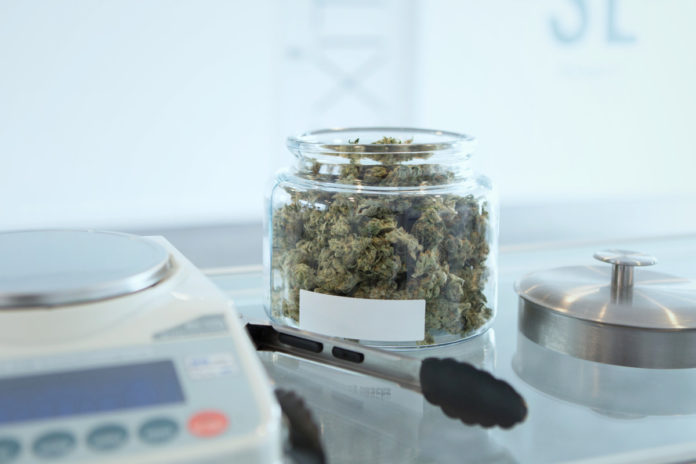For Canadian medicinal cannabis users hoping to remain legit, legalization has brought on a crisis.
There are shortages of legal product and not all licensed producers have chosen to reserve quantities for established medical clients.
The medicinal cannabis system in Canada was never anyone’s master plan.
Rather, it was built from government reactions to a series of arrests and successful activist-patient charter challenges that ran between 1998 to 2016.
That series resulted in a set of LPs, a mail-order-only program and a range of products limited to dried flower and dilute (3 per cent THC) infused oil.
In practice this system worked only because it was bolstered by the presence of dispensaries. But legalization has shifted all of this.
There is only a handful of legal cannabis stores in British Columbia, for instance.
The Cannabis Act is designed in part to eradicate the black market. But that market includes dispensaries.
So what now?
CAN THE DISPENSARY SURVIVE?
Dispensary owners have been operating in a pre-legalization grey area.
How they maneuver in this new space depends on local governments and law enforcement.
Toronto has stuck with police busts, though they’ve resulted in few convictions.
Some proprietors have learned to keep calm and re-open, limiting inventory to a day’s needs.
Vancouver has chosen to license some dispensaries, but control their numbers via injunction, opening the door to legal challenges.
Victoria, which has also licensed dispensaries, provides another model.
There, shop-owners are visited by “charming” bylaw officers, according to Alex Robb, manager of Trees Dispensary.
And city council has remained silent, leaving dispensers to carry on as usual. Robb is in the process of applying for a provincial license.
Read also: Legal pot averages $9.70 per gram, versus $6.51 from illegal dealers: Stats Can
Given bureaucratic timelines, we should expect legal shops throughout B.C. by spring of 2019.
But these shops will not carry oils, tinctures and other products that medical users rely on.
Nor will they feature the social aspects of a dispensary.
These include staff able to offer expert, face-to-face support, discounted or free medicines, and access to alternative therapies at discounted prices.
Some dispensaries host potluck dinners, and holiday parties. B.C. activists, including Dana Larsen, have vowed to uphold this traditional model.
SOME HISTORICAL PERSPECTIVE
Dispensaries are the legacy of a movement that began with the passing of Proposition P in San Francisco, in 1991.
The proposition “legalized” cannabis use for local AIDS sufferers and patients coping with chemotherapies.
The San Francisco Buyers’ Club, North America’s first dispensary, opened in 1992.
Then in 1995, California passed Proposition 215, sanctioning medical cannabis in that state and ushering in a new era.
By 1997, Canada had four dispensaries: Cannabis as Living Medicine, in Toronto; the BC Compassion Club Society, in Vancouver; the Victoria Cannabis Buyers’ Club; and Vancouver Island Compassion Society.
Today, there are an estimated three to four hundred, countrywide.
Though frequently dismissed by media as “pot shops,” dispensaries carry a range of medicines that treat serious illnesses.
These include edibles, tinctures, potent oils, concentrates, resins and topicals.
None is currently legal, and it is not known which, besides edibles, will be legal in 2019.
A BATTLE IN VANCOUVER
In August 2017, the City of Vancouver filed injunctions against 53 cannabis dispensaries that were non-compliant with its rule that they be 300 metres or more away from schools, and day care centres.
Adherence to this rule would have resulted in a shut down of 90 per cent of Vancouver’s dispensaries.
Yet, city approval is essential indispensable to any future for them.
In September 2018, lawyers Robert Laurie and John Conroy mounted a charter challenge in the BC Supreme Court.
They argued that the 300-metre distance was arbitrary and that, in attempting to shut down dispensaries, the City went beyond its jurisdiction. Such an attempt bars patient access to cannabis medicines, an established charter right.
Read also: Two legal pot shops now open in Vancouver
Then in November 2018, lawyers Robert E. Laurie and Jack Lloyd began preparing to petition the BCSC for a further hearing.
They plan to show that the situation for patients has been made direr by Canada’s postal strike and shortages of legal cannabis.
At deadline for this issue, Chief Justice Christopher Hinkson ruled that all 53 dispensaries must cease operation, but a timeline for enforcement remained unclear.
For the City of Vancouver, this is a battle to limit storefronts. But it is better understood as a collision of flawed systems: an inadequate medical one, and a scrambling recreational one.
If the court challenge is successful, the BCSC will toss the ball back, in effect, to government at all levels. After that, we will likely creep a little closer to resolution.



















